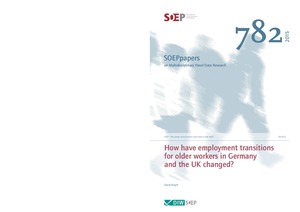Getting poor to work: three welfare increasing reforms for a busy Germany
"We study three budget-neutral reforms of the German tax and transfer system designed to improve work incentives for people with low incomes: a feasible flat tax reform that provides a basic income which is equal to the current level of the means tested unemployment benefit, and two alternative...
| Main Author: | |
|---|---|
| Institution: | ETUI-European Trade Union Institute |
| Format: | TEXT |
| Language: | English |
| Published: |
Berlin
2015
DIW |
| Subjects: | |
| Online Access: | https://www.labourline.org/KENTIKA-19100188124919283609-Getting-poor-to-work-three-wel.htm |
| Summary: | "We study three budget-neutral reforms of the German tax and transfer system designed to improve work incentives for people with low incomes: a feasible flat tax reform that provides a basic income which is equal to the current level of the means tested unemployment benefit, and two alternative reforms that involve employment subsidies to stimulate participation and full-time work, respectively. We estimate labor supply reactions and welfare effects using a microsimulation model based on household data from the Socio-Economic Panel (SOEP) and a structural labor supply model. We find that all three reforms increase labor supply in the first decile of the income distribution. However, the flat tax scenario reduces overall labor supply by 4.9%, the reform scenario designed to increase participation reduces labor supply by 1%, while the reform that provides improved incentives to work full-time has negligible effects on overall labor supply. With equal welfare weights, aggregate welfare gains are realizable under all three reforms." |
|---|---|
| Physical Description: | 29 p. Digital |

